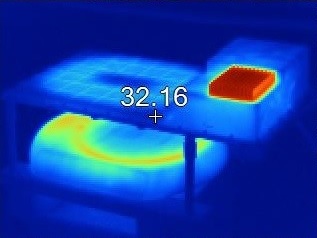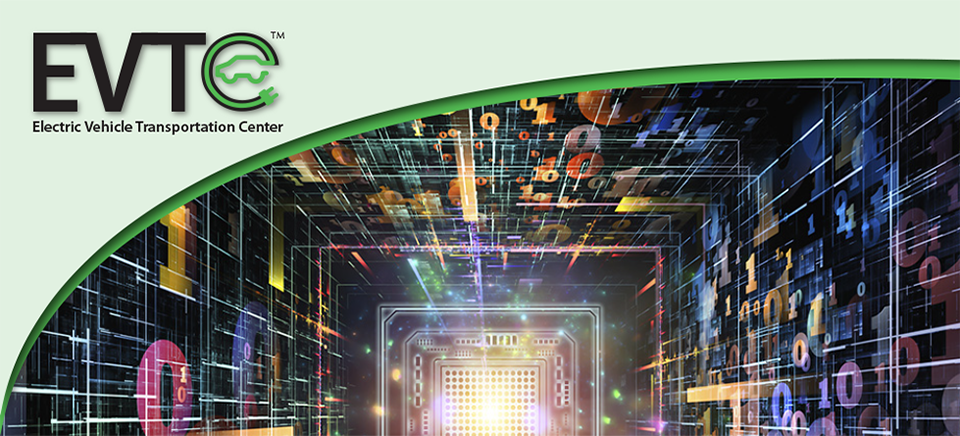Project 15:
Electric Vehicle and Wireless Charging Laboratory
Objective
Furnish and equip an EV and Wireless Charging Laboratory within the FSEC laboratory facilities. This facility will function as a laboratory where EVs are charged and discharged through a computer assisted communication networks and wireless chargers are evaluated.
Brief Description
Laboratory projects have included EV charging and discharging through computer assisted communication networks, evaluation of wireless chargers and operation of a bi-directional vehicle-to-building (V2B) inverter system. Wireless charging tests have been conducted to document testing protocols, evaluate standards and evaluate operational related wireless charging characteristics. The investigation of using EV traction batteries as distributed energy resources for improving building and utility electric grid efficiency and quality is being conducted. Also under development is an automated communications system to include the bi-directional charger into the building energy management system. The lab has conducted measurement from varying battery types and electric vehicle chargers (type, rating, programmability).
Research Results
 The EV laboratory has conducted experiments on an EV vehicle (presently a Nissan Leaf) which is connected electronically through its CHAdeMO charging port to become part of a computer based communications network. A controller was built to allow the vehicle battery to be accessed for discharging through external load supply equipment.
The EV laboratory has conducted experiments on an EV vehicle (presently a Nissan Leaf) which is connected electronically through its CHAdeMO charging port to become part of a computer based communications network. A controller was built to allow the vehicle battery to be accessed for discharging through external load supply equipment.
The lab staff has also investigated wireless charging products and their respective manufacturers for writing purchase specifications. Lab experiments measure electric and magnetic field emissions according to the Society of Automotive Engineers Technical Information Report Standard J2954 - Wireless Power Transfer for Light-Duty Plug-in / Electric Vehicles and Alignment Methodology. A thermal imaging camera shows the heat signature of the Plugless wireless EV charging station under test.
Lab experiments have successfully coupled an EV for storage interactions with the output of a PV system. The EV lab has purchased two EV's dedicated to interactions and storage experiments. A Princeton Power System bi-directional electric vehicle charger has also been purchased and installed. Researchers are currently developing an automated communications system to include the bi-directional charger into the building energy management system.
Future wireless plans are to purchase three wireless charging products that will be used to perform the wireless experiments that include measuring system efficiency of transmitters and measuring receiver pairs at various distances and offset. The results will document magnetic and radiation field strength according to standards and measurements. The EVTC researchers have also formed a partnership with the wireless charging research efforts at Utah State University.
Impacts/Benefits
Wireless electric vehicle charging simplifies EV battery charging and will allow vehicle owners to simply park their vehicle to charge the battery. The investigation of using EV traction batteries as distributed energy resources for improving building and utility electric grid efficiency and quality will enhance EV usage to owners and utility companies.
Raustad, R., Wilson, W. (2018). Electric Vehicle and Wireless Vehicle Charging Laboratory (FSEC Rep No. FSEC-CR-2078-18). Florida Solar Energy Center: Cocoa, FL.
Project Title: University: Principal Investigator: PI Contact Information: Florida Solar Energy Center Funding Source: Total Project Cost: Agency ID or Contract Number: Start date: End date: |
